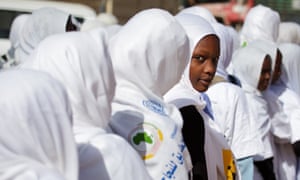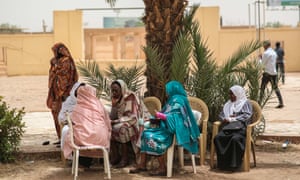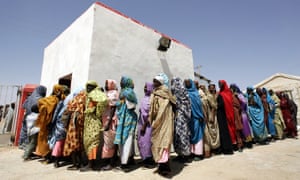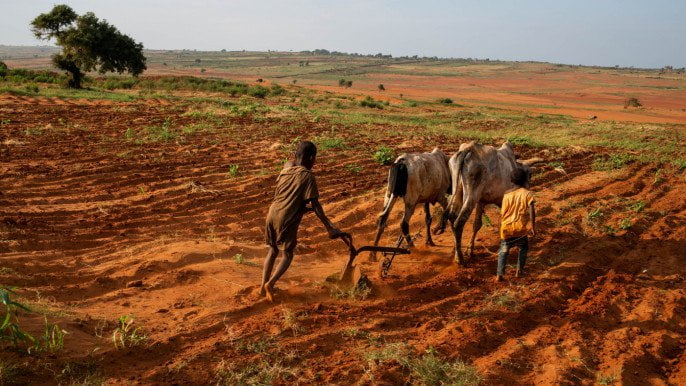
On her way to a meeting with a UN official to discuss sexual violence in Sudan, Nagwa was detained by plain-clothed policemen who blindfolded her and held her in a cell for eight hours.
Nagwa, a women’s rights activist, thinks she was silenced because the authorities feared she would blow the whistle on the time when security agents raped her and placed her under house arrest for her work with Nuba Mountain communities displaced by ongoing conflict.
Nagwa’s story is one of many outlined in a report released today by Human Rights Watch that documents the abuse experienced by female activists at the hands of Sudan’s security forces.
In more than 85 interviews researchers found that almost all the women had experienced some form of gender-based violence perpetrated by the authorities as a result of their work.
“Generally in Sudan, the government is targeting women more than men,” Fatima, a women’s rights activist in Khartoum, said in response to the report. “A lot of laws and a lot of legislation have been drafted since this government came, [targeting] women, [restricting their] dress, and even mobility and work.”
The report also details frequent violations such as rape and sexual violence, psychological and verbal abuse, with many interviewees adding they had also been subjected to arbitrary detention.

Social stigma
Speaking on the release of the report, Fatima, also an activist, says she was detained in 2012 and interrogated.
She says the police questioned her morals because of her activism. “It’s an ethical issue for them. If you are a female in Sudan and go out to protest in the street… that means you are a bad woman or a bad girl,” she says.
Fahima Hashim has a similar story. She ran a women’s centre in Khartoum for 17 years before security forces shut it down in 2014. “You know you are really crossing the line talking about politics [and] sexual violence’,” security forces allegedly told her.
The activists said there have also been multiple instances where the country’s media had been used to leverage social stigma against women involved in activism, citing news articles on planned protests to discourage potential participants.
Shadia Abdelmonim, who has been campaigning for women’s rights for more than 20 years, said state-controlled newspapers have also referred to female civil society activists as “lesbians and prostitutes” for taking part in demonstrations.
“Once they told me, ‘Take off your dress and we’ll make a film [and] post it on Facebook and all over the media, and put your name in the newspaper with the pictures’,” Abdelmonim says. “I told them, ‘Just do it, because the people know me! … They know that I am not like what you are saying’.”

Threats
The harassment does not stop with verbal abuse and intimidation. “They threatened me that they would rape my daughters – [that] they would bring my daughters and rape them in front of me,” Abdelmonim said.
Denied food, water and medicine during one of her many detentions, security personnel allegedly tortured the activist with electric shocks “when they didn’t like what I said,” she said.
Of the women interviewed by Human Rights Watch, none had brought their cases to court and the perpetrators of the alleged crimes have yet to be be investigated or prosecuted. As a result, many of the activists have left the country, fearing further violence and intimidation.
But others are finding ways to push forward with their work. “To some extent I’ve changed,” says Fatima, explaining how she now focuses on training women how to stay safe. “All the time I’m afraid,” says Abdelmonim, “but I do it.”
[Source:- The Guardian]




